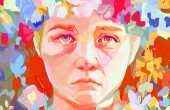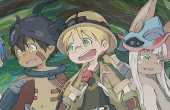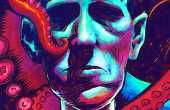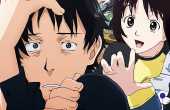Debs
Scientist by training, writer by choice. Loves anime, horror, religion, nature, folktales, and all things weird and strange.
Correspondent II
- Plebian Penman
- Common Writer
- Aristocratic Author
- Lurker
- Pssst
- Hand Raiser
- Vocal
- Sharp-Eyed Citizen
- Town Watch
- Detective Deskman
- Actor
- Successful Pilot
- Otaku
- Article of the Month
- ?
- Articles
16 - Featured
16 - Comments
136
- Ext. Comments
72 - Processed
34 - Revisions
32
- Topics
32 - Topics Taken
6 - Notes
61
- Topics Proc.
32 - Topics Rev.
17
- Points
4946 - Rank
25 - Score
2519
Latest Articles
Latest Topics
Flatterers in fictionThe ancient philosopher Plutarch wrote a famous essay on how to tell the difference between a friend and a flatterer. In this essay, he lists several qualities associated with a flatterer, including: With this definition in mind, what are some examples of flatterers from fiction, particularly modern fiction? What traits, if any, do they and their victims have in common? Are there any stereotypes associated with fictional flatterers, either in terms of physical features or psychological makeup? |
Audience perceptions of characters in TV showsIt seems as though, a lot of the time, the audience's perception of a character in a story is colored less by things the character has actually said or done, and more by how another character (who is usually a main character or simply more popular) views them. For instance, in the original British Office, Tim, a salesman, spends most of his time bullying his fellow salesman, Gareth. However, because Tim is more popular and gets more screen time, audiences just assume that he is the "nice" one and Gareth "deserves" to be mistreated when there's no real evidence of this. The same series also includes a corporate higher-up named Neil, who is made out to be "mean" simply because he doesn't get along with David, the main face of the show. What are some other examples of this phenomenon from TV, or media in general? Are there any characters who seem to be especially unfairly judged? Do they (or the people judging them) share any particular traits in common? |
Has destigmatizing suicide gone too far?Nowadays, suicide carries less stigma than ever before, both in fiction and in real life. In many respects this is a good thing, as it means that people who experience suicidal ideation no longer have to feel like they are morally deficient. However, it seems as though some works of media have gone too far in the other direction, portraying suicide either as something glamorous or as an inevitable consequence of mental distress. A key example of this can be seen in the novel and Netflix series "13 Reasons Why," both of which seem to portray suicide as a weapon that can be used to get back at someone. Some modern Biblical commentators have even gone so far as to argue that Sarah, the holy matriarch, might have been suicidal based on little to no evidence. What are some ways in which creators can portray suicide more respectfully? Is it possible to point out the harm that suicidal ideation does without making people feel guilty or ashamed for being depressed?
|
Lesser-Known Adaptations of The OfficeWhen most people think of the mockumentary sitcom series known as The Office, they probably think of the version from either the United States or the United Kingdom. However, The Office is a multinational phenomenon, with at least eight or ten countries having their own home-grown adaptations of it, which they use to make fun of their own work cultures. What are some highlights from these international adaptations? How do they differ from their more famous English-language counterparts? Are there any adaptations that, in your opinion, do not receive the attention they deserve?
|
Does BoJack Horseman suffer from psychosis?The TV series "BoJack Horseman" is a surreal dark comedy that takes place in a world in which some of the characters (including the title character) seem to be talking animals. BoJack himself openly suffers from several mental illnesses, including depression and anxiety, but could he also have a psychotic disorder, like schizophrenia or bipolar disorder? Psychotic disorders interfere with people's perception of reality, which might explain some of the more surreal aspects of the series. It might even explain the talking animals, since psychotic illnesses can include a delusion that one is an animal. So, what is the evidence for or against BoJack suffering from psychosis? If he does have a psychotic disorder, what kind does he have? |
Fictional children acting in unchildlike waysIt's relatively rare to find fictional children who act like real children. More often than not, fictional children talk and act like miniature adults. Oftentimes, this is a deliberate artistic choice, which may either be played for laughs (as in Rugrats, The Simpsons, or South Park, for example), or used to show that there is something seriously wrong with the child in question (as in The Umbrella Academy, and many anime series). On the other hand, some creators seem genuinely unable to fathom how children think and behave, and so write them behaving like adults by default. What are some examples of stories that portray children this way? What, if any, differences are there between stories that portray children acting like adults for artistic reasons, and those whose writers simply don't know any better? What effects, if any, do fictional portrayals of unrealistically-mature children have on how people view children in the real world?
|
Who should be the focus of the next biopic?A biographical film, or biopic, attempts to document the life of a real person or organization on film. Some examples of famous biopics include Schindler's List (for Oskar Schindler), A Beautiful Mind (for John Nash) and Selma (for the American civil rights movement, including Martin Luther King, Jr). Who are some examples of people, living or dead, that would make good biopic material? What is it about them that suits the biopic format? If a biopic were to be made of them, what details would need to be included?
|
Characters who fall in love with versions of themselvesIn some stories, the main character's love interest seems designed to be an almost perfect mirror image of themselves. These characters' lovers share their same personalities, tastes, and motivations, and might even look something like them. "The Umbrella Academy" is one notable show that does this. So far both seasons feature a central character falling in love with someone who is almost exactly like themselves (Vanya in Season 1 and Diego in Season 2). What are some other examples of this trope? How popular is this phenomenon in fiction and what factors contribute to it?
|
Latest Comments
| A Detailed Look at the Cast of The Office | |
I first read 1984 as a high school freshman, and have since read it a number of times in adult age. The more I think about it, the more I think the ending is really not so sad after all. Yes, Winston and Julia end up losing everything and enslaved to Big Brother; but before that happens they essentially get to do everything they’ve always wanted. They meet up, fall in love, start living together, and even get to read a book about the machinery of the Party. The implication is that they were doomed to be arrested as thought criminals either way, because they needed something to do. It wasn’t enough for them to simply live according to the Party’s rules all their lives. So, I feel like there is something to be admired in the fact that they managed to make things happen on their own terms, if only for a little while. | 1984: What Does it Tell us About The Purpose of Life? |
I’ve only seen Mean Girls once, many years ago; but it’s been on my mind since I started reading Rosalind Wiseman, the author of Queen Bees and Wannabes (the book upon which Mean Girls is based). I’ve not read that book specifically, but I did read Masterminds and Wingmen, which applies the same approach to the social dynamics of boys. What I was struck by is that the three bullies in Mean Girls actually have equivalents in the boy world (where Wiseman dubs them the Mastermind, Associate, and Bouncer). To me that just reinforces how ubiquitous bullying is, even if it looks different for girls than for boys. | Mean Girls — 20 Years of Sass, Pink, and Cultural Rule |
I’ve been thinking about this a lot, and I’ve come to the conclusion that most people don’t really like “bad boys” or other villainous characters purely because they are bad. In my experience, they tend to like and relate to them because of other things that correlate with their badness but are not in and of themselves moral deficiencies. For instance, in many stories, the hero comes from a happy home, with two loving parents, whilst the villain or “bad boy/girl” comes from a broken home. With there being so many broken homes nowadays, it’s not surprising that a substantial proportion of audience members would relate to the “bad boy” from a broken home and not a hero whose home life seems (to them) unrealistically perfect. I’ve recently become a fan of the indie film Whiplash, which stands out as one of the few films where the “hero” is more interesting than the villain. The central character is a bad boy of a sort, minus the promiscuity (though even that is debatable), and he has a pretty dark past. The filmmakers could have easily set him up as one of the villains and a more pleasant and “uncomplicated” character as the hero if they had wanted to. I remember thinking how refreshing it was to see such a dark and interesting character in a leading role, and having him be the one to defeat the (much worse) villain, instead of just serving as a foil for a bland-but-likeable everyman. | Bad Boys: Dark, Dangerous, Disturbing… and Delicious |
I’ve read 1984 several times now, and the more I read it, the more convinced I am that it actually has a (somewhat) happy ending. Granted, Winston and Julia are forced to submit utterly to the Party; but before that they get to do everything they wanted: talk about their ideals, live a “normal” life together, and even fall in love. The implication in any case is that thought criminals like them always out themselves eventually, simply because they need something to do. It wasn’t enough for them to simply go about life as obedient Party members, nor would it ever have been. So, not only was their journey inevitable, but they did in fact become better people because of it, at least while it lasted. | 1984: What Does it Tell us About The Purpose of Life? |
Thing is, I do think protagonists in general have become less likable in the last decade or so. Several times now, I’ve tried watching very popular and well-regarded series only to find that the main characters were totally selfish assholes, and their diehard fans both in and out of universe always say that they “mean well” or “grow as a person over time,” or “always come through when it counts,” even if these traits are never actually in evidence. Whether or not Chainsaw Man itself is guilty of this (though the article makes it very much sound like it is), I feel like it’s become a trend and I don’t like it. | Chainsaw Man and the New Shonen Protagonist |
It’s great that you take the time to break down the difference between manga genres and demographics. From my admittedly limited understanding, some stories that seem more adult-oriented get published in shounen (or in some cases shoujo) magazines simply because teen magazines have wider reach and are marketed more heavily. Because of this, publishing in one of these teen magazines leads to more publicity for the authors than trying to publish in, for instance, a seinen magazine would. My personal favorite anime, Shiki, seems to be an illustration of this phenomenon, though I don’t know this for a fact. Though the anime is clearly aimed at mature audiences, the manga ran in a shounen magazine. The series began its life as a collection of novels, which I assume were also more adult-oriented, but the manga greatly expanded upon the role of a teenage side character named Natsuno Yuuki, eventually making him out to be a main character in his own right. I can assume that this was done in order to make the series more attractive and relatable to an audience of teenagers. When the anime came out, it relegated Natsuno to a supporting role again (albeit a much larger one), and basically reduced him to a plot device later in the story in order to keep him involved. | Marketing vs. Genre in Manga - How They Can Get Confused |
I can’t speak to Chainsaw Man (since I’m not familiar with it), but personally, I’m not altogether convinced it’s a good thing that NOT trying to be a good or admirable person is seen as a positive when it comes to lead characters. Amoral acts are still wrong even if they’re being committed by main characters; and while it might be realistic, to a certain extent, that desperate people will do desperate things, a sad history in and of itself doesn’t erase a character’s bad conduct or make it okay. Personally, I’d be a lot more interested in learning about how someone overcame a bad situation and behaved righteously despite the pressure to do otherwise, than someone who used a difficult life to excuse their own bad choices. | Chainsaw Man and the New Shonen Protagonist |








My suspicion, for what it’s worth, is that it’s not so much that Gervais “became” David Brent as that he’s always been that way. Brent was just him taking the mask off.